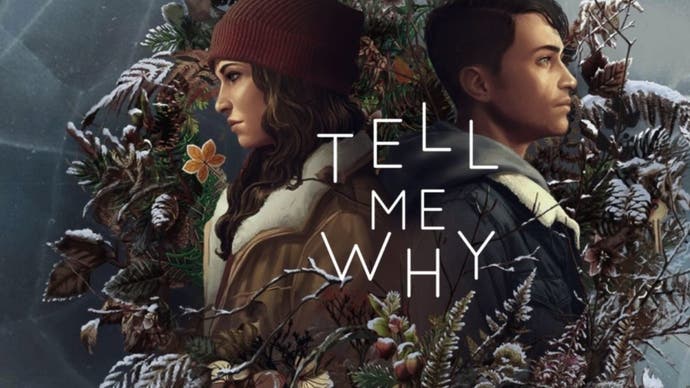Tell Me Why review - memory and identity converge in another taut young adult adventure
Ain't nothin' but a heartache.
I don't know how they do it. Dontnod have real form making these intense, socio-political narrative games, where you simply walk around interacting with other characters and objects. Tell Me Why is another success.
This time, the story is about a set of young adult twins dealing with the fallout of a traumatic childhood incident. One of the siblings is close to completing their transition to male, and Dontnod is wonderfully deft and sensitive, simultaneously making this detail both central and peripheral to proceedings as you dive deeper into the narrative.
Tyler Ronan has returned to a sleepy Alaskan village, reuniting with his sister Alyson, after a decade in juvenile detention. Together again, the twins are determined to understand exactly what happened during their difficult and precarious childhood. This is complicated by the fact they both have different ideas about how to seek out the truth, especially as Alyson never stopped living close to the people who might have answers.
The game alternates between siblings, as you guide them between different environments and conversations. Like the Life is Strange games, bedrooms are heavily featured, private worlds where Dontnod is able to convey so much of their characters' personality, hobbies and habits through possessions and artefacts. It's wonderful.

But a hallmark of this series of games is the addition of the supernatural, and how the characters use some special ability they have to their aid. Here, Tyler and Alyson are able to share their memories as they explore this strange, cold world. But tension arises when you're given the choice between whose memory you think is factually correct at certain moments in the story. There's much research into the way our minds work regarding memories, all the more relevant given that 2020 has broken our brains entirely. I'm glad the designers used this very human fragility as a game mechanic; it's an interesting example of how Dontnod expands and refreshes its formulas for different games.
These choices you make affect the strength of the siblings' bond - a decision which is made even more difficult as their individual memories form their separate ideas of the "truth". It's really fascinating. These perspectives end up leading the way in how Tyler and Alyson understand and even empathise with other characters, just like us, including those who appear to be - and may actually be - villainous, depending on your interpretation of the story.
Another bold choice is the way Tyler's personality and reactions are portrayed. If you thought the writers were going to settle for him being a "trans character" with nothing else being interesting about him, you're thankfully mistaken. His actions, both past and present, don't make him an automatic hero, adding to the nuance the story calls for. Having already dealt with abuse, drugs, violence, politics and racism in their previous games, the team at Dontnod seem quite capable of tackling tough issues with great complexity, depth and sensitivity, something that still remains rare in this medium.
I had to look up my old review of the first Life is Strange and two things still ring true. The first, particularly as the game is about digging through the past via investigation, is how it reminded me of Rian Johnson's movie Brick from 2005. Both stories involve young adults uncovering facts, being mature and twisting the so-called "procedural" genre. And the second, like all of these games, is how they seem like waking dreams, unsure of what is reality and truth, confusing both the characters and us, the players. Tell Me Why is similar in that huge trees and forests are characters too, warping our sense of solitude and heartache . (Once again the action takes place in North America, where the ideas of what the Pacific Northwest means is varied and mythologised. This, along with a muted colour palette, creates a memorable atmosphere for such a heavy, narrative experience.)

There were a couple of things that bothered me, which I have to mention. The first is a few lines of dialogue in a couple of scenes here and there were never spoken. I thought the first time this happened it was a strange technical fluke. However, unlike previous Dontnod titles where performance on my Xbox was fine, the game automatically closed just before the final moments and credits sequence. I was able to play these last few minutes on my PC, and I expect both of these issues to be resolved once that last episode is out in a fortnight. [Editor's note - Microsoft has acknowledged the issue and says a fix will be in place come the launch of the episode on September 10th.]
Because of that, it doesn't affect my final impression. Dontnod has crafted a brilliant narrative that once again puts teenagers and young adults at the forefront of today's big issues, never shying away from talking about our world. But this isn't just an "issues" game. It reminded me of the TV series Rectify, about a convict released from prison thanks to DNA evidence proving his innocence. There is similar poignancy and sadness throughout the story in Tell Me Why, as Tyler and Alyson discover the meaning of their childhood memories, while being unable to change the past, trying to reach a mother now lost to the world. Not only does it provide emotional depth, but the story seeks emotional justice, and it never fails to bring us along on this journey for the truth.



